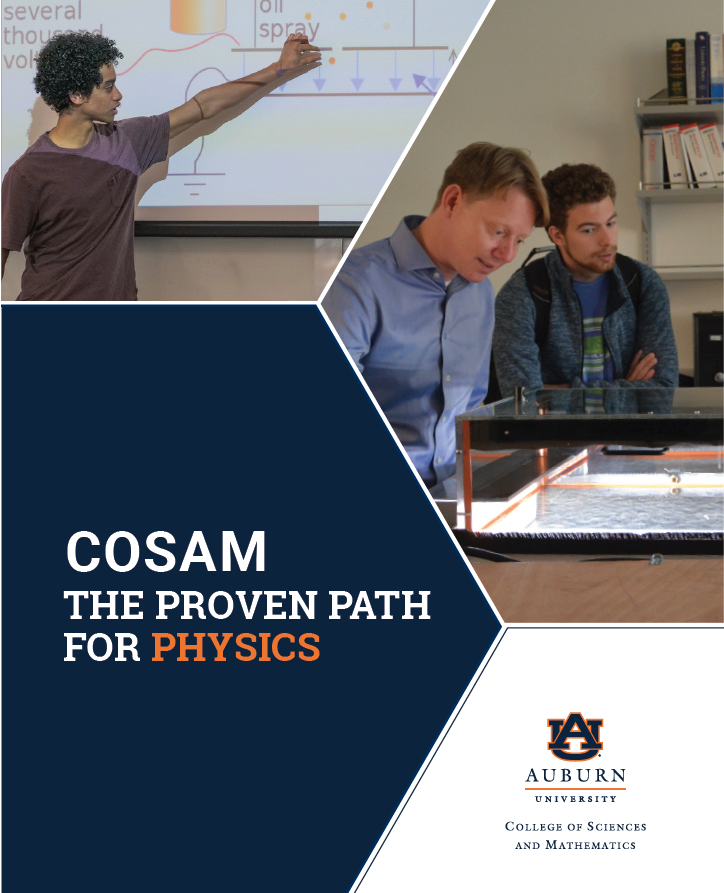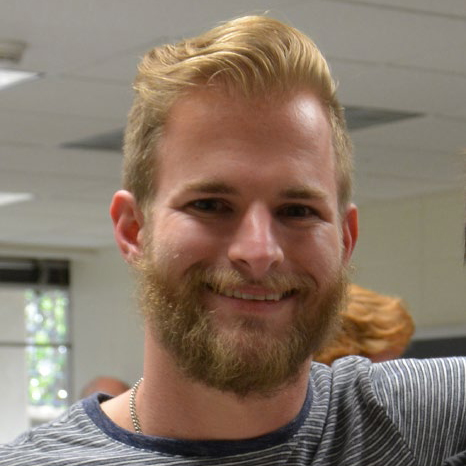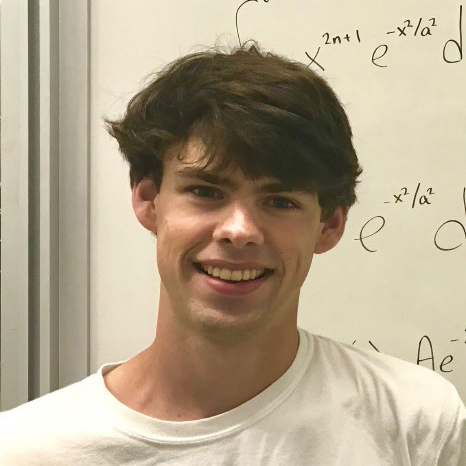Physics Undergraduate Programs
A versatile degree with a broad spectrum of rewarding careers.
Why should you consider COSAM?
COSAM has a low ratio of faculty members to physics majors which means each student receives individual attention usually only available at much smaller schools. As an undergraduate student, you can take classes on sub-atomic particles, the origins of the universe, superconductivity, and superheated plasmas.
Physics majors interact with faculty performing world-class research using world-class instrumentation. Department research focuses on five major areas including Atomic, Molecular and Optical Physics (AMO), Biophysics, Condensed Matter Physics, Plasma Physics, and Space Physics.
The AMO group has finished construction of an attosecond laser facility, and the Condensed Matter group is finishing the installation of a state-of-the-art molecular beam epitaxy system. Our Plasma group operates the Magnetized Dusty Plasma and Compact Toroidal Hybrid experiments at Auburn, and collaborates on the Wendelstein 7-X stellarator in Germany and the DII-D tokamak in San Diego. Our Space physics group is continuing development of magnetospheric and satellite observing modeling codes to deepen our understanding of the solar system environment.
Through the Auburn University Small Satellite Program, physics majors design, build, and operate satellites which have been launched into orbit. Their first satellite, “AubieSat 1,” which was placed into orbit through NASA’s Educational Launch program, transmitted “War Eagle” in Morse Code from Earth to space. The program is working toward student-built projects for planetary exploration.
The new Leach Science Center opened in June 2019 and includes a 62,500 square-foot, $24 million expansion. The entire building is student-centric with vibrant study spaces and numerous places for students to collaborate with classmates and faculty.
Take advantage of the Accelerated Bachelor's/Master's (ABM) program.
You can earn a master's in physics in less time with the ABM track. Learn more about this beneficial program.
What careers can you pursue with a degree in physics?
Physics, the most fundamental science, tries to explain how the physical universe behaves. Physicists study the nature of the universe at every level--from sub-atomic to cosmological. Physics provides a versatile degree and essential problem-solving skills for a broad spectrum of rewarding careers in scientific research, academics, business, medicine, law, education, engineering, and computer science.
- Accelerator Operator
- Applications Engineer
- Astronomer
- Biophysicist
- Computational Scientist
- Data Analyst
- Data Scientist
- Energy Policy Analyst
- Forensic Firearms Examiner
- Health Physicist
- IT Consultant
- Lab Technician
- Laser Engineer
- Materials Scientist
- Medical Physicist
- Meteorologist
- Optical Engineer
- Patent Agent
- Process Engineer
- Research Associate
- Quantitative Research
- Analyst
- Software Developer
- Systems Analyst
- Technical Specialist
- Web Developer





